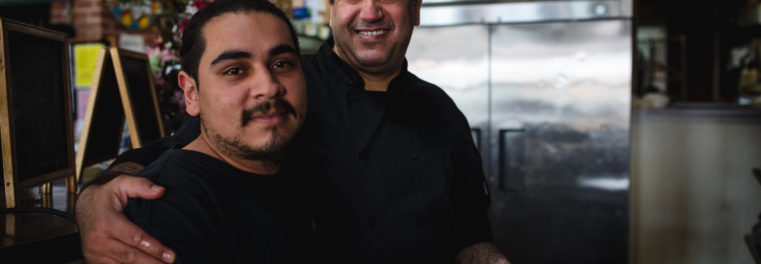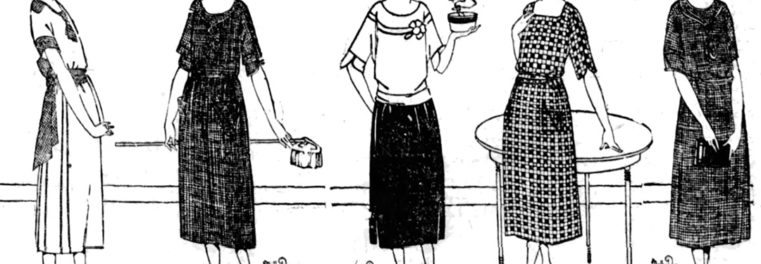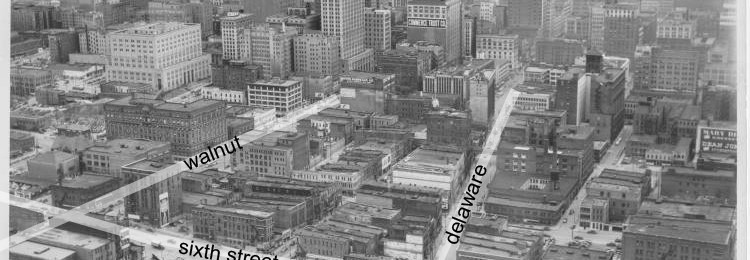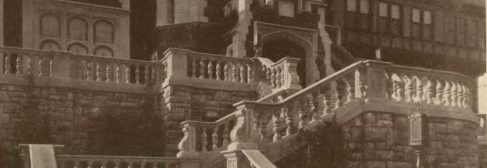Parkview Hotel/Dr. McCleary’s Sanitarium
Jazz Hill, Jazz Hill Apartments, Alameda Hotel, Parkview Hotel, Dr. A.S. McCleary, Twin City Co., Kansas City Negroes Group, Jockey Jazz Club

Courtesy of the Pioneer Group, Inc.
The Jazz Hill Apartments at 1000 Paseo Boulevard (in Kansas City, Mo.’s Jazz District) once served as “the largest institution in the world devoted exclusively to treating rectal disease.” The same ad from which that lovely quote was pulled, featured in a 1921 issue of the Railway Conductor journal, boasts that Dr. McCleary and his extensive knowledge and skill could cure “piles” without the need for surgery. Piles are now more commonly known as…
…Hemorrhoids. Ol’ Doc McCleary knew them well, as he’d been in the business since at least the turn of the 20th century – and his work was nationally renowned. “Dr. McCleary,” published the Kansas City Chamber of commerce, “is considered very highly in the medical profession… We do not hesitate to recommend Dr. McCleary, as everything goes to prove that anyone will undoubtedly receive splendid treatment in his hands.”
His original practice at Harrison and 10th Streets operated until 1919, when he relocated to the 10th and Paseo building. Upon the good Doc’s move-in, the former Parkview hotel became Dr. McCleary’s Parkview Hotel and Sanitarium. It wasn’t the first time the building was re-dubbed, and it certainly wouldn’t be the last. The Parkview name was adopted when the hotel opened in 1913 – mainly because a concrete collapse that killed four workmen during its construction in 1912 garnered a not-so-positive association with the original Alameda Hotel name.
The lot at 10th and Paseo changed hands in 1911, when homeowner Emmet Hunter sold his property to Walter Davis. This Kansas City hotelier built/owned a myriad of hotels on the Paseo, including the Missouri and the Maryland. Davis hired architect C.B. Sloan to design the Alameda – ahem, I mean Parkview – Hotel, and managed it solo until 1919, when along came Dr. A.S. McCleary.
But the rectal expert’s stint at 10th and Paseo was even shorter than the hotel’s, and in 1924 McCleary took himself and his practice to Excelsior Springs, Mo.

Courtesy of The Excelsior
Now, I don’t blame you for wondering how a rectal-treatment center could transform into an apartment building. It does seem odd. But the thing is, 1000 Paseo Boulevard has always offered accommodations, even when the place was better known for piles. Call it a hotel, call it an apartment building, call it an extended-stay – from construction to this very moment, people have continuously occupied the old hotel.
The year 1937 brought a permit for renovations, and the new Parkview Hotel and Apartments (1938 – 1948) conducted business under various monikers until 1975. One of these: the Twin City Hotel Company, an extension of the Greater Kansas City Negroes group, which offered housing for the city’s black population. In 1947, Twin City installed the swingin’ Jockey Jazz Club on the first floor of the building.
The city’s Housing and Urban Development department (H.U.D.) attained a building in ruins at 1000 Paseo Boulevard in 1975. One complete overhaul later, the structure opened once more, this time for public housing. In 2002, the Parkview joined 10 other apartment buildings on the list for “rehabilitation in an effort to preserve the buildings, provide quality affordable housing, and continue to work toward revitalization of the area,” arranged by the Missouri Department of Natural Resources. The same year, 1000 Paseo Boulevard entered the National Register of Historic Places. Now operating as Jazz Hill Homes, those old brick walls have sheltered an incalculable assortment of Kansas Citians.











